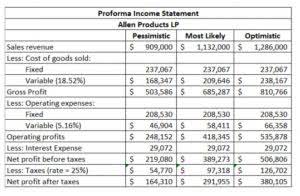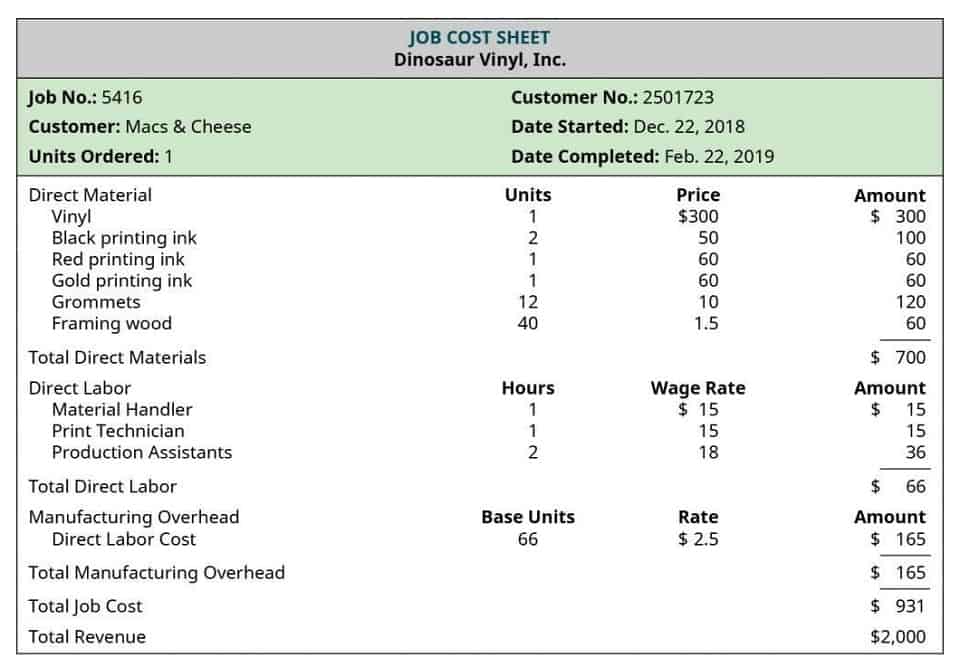
Partnering with an established accounting firm can provide comprehensive financial services https://www.bookstime.com/articles/double-declining-balance-method for your startup. Financial concepts can be complex, but your accounting service should be able to explain them in terms you and your team can easily understand. Look for providers who can translate financial jargon into clear, actionable insights. They should be able to create reports and dashboards that clearly communicate your financial position and performance.
- The Credit for Increasing Research Activities, more commonly known as the R&D tax credit, allows you to carry forward the value of the credit into your future, profitable years.
- Kruze Consulting offers a variety of pricing plans to help early-stage companies afford accurate startup accounting services.
- This hands-on approach not only saves money but also gives you a deeper understanding of your startup’s financial health.
- With teams in different jurisdictions, there will be different tax and labor laws you will need to follow.
- Additionally, the integration with their accounting software helped ensure that all expenses were automatically recorded and categorized, making end-of-month reporting nearly effortless.
- Each entry includes important details such as the date, the accounts affected, and the amounts debited and credited.
Tax compliance

BookkeeperLive provides affordable bookkeeping and accounting services tailored to your business goals. By following these core bookkeeping principles, businesses can maintain accurate records, ensure financial transparency, and make well-informed financial decisions. Although bookkeeping isn’t legally required for every business, accountant for startups adopting a reliable system—especially the double-entry method—is highly recommended for startups aiming to grow. Double-entry bookkeeping helps prevent compliance issues and supports business expansion by providing a strong financial foundation. Advertising expenses are key to establishing a brand presence and attracting customers.
- Harness the potential of these financial management apps and set your startup on the path to financial clarity, robust growth, and sustained success.
- Through their experience, your accountant will have seen many different arrangements around financing, accounting methods, startup strategies, and more.
- Along the way, you’ll also develop the practical skills essential for anyone pursuing a career in finance.
- There are tons of administrative and tax-related regulations you must learn and comply with.
- For additional support, consider hiring a local CPA or accountant familiar with Texas tax nuances.
- First, you can scale services up and down according to your business needs.
Popular Accounting Software for Startups

Contact an expert small business tax accountant at 1-800Accountant for all of your startup accounting needs. By hiring a CPA, you’ll give your company a professional who will keep current with knowledge and regulations. In the fast-paced world of New York City’s startups, managing tax obligations with precision and foresight is crucial. At Kruze, we offer unparalleled tax advisory services that cater specifically to the diverse and ever-evolving needs of NYC startups.
Kruze
Explore how Ramp’s accounting automation software can help save your startup time and money. Unlike a bookkeeper, a certified public accountant (CPA) can represent your business in a tax audit if your CPA is an Enrolled Agent (EA) with the IRS. Further, a bookkeeper will generally not be able to help you assess the cost of your operations and find areas for savings. An accountant, not a bookkeeper, would generally conduct internal financial audits. Throughout this article, we’ve said that your accountant can give you advice on many things. Through their experience, your accountant will have seen many different arrangements around financing, accounting methods, startup strategies, and more.

Keeping online bookkeeping up with regulatory requirements can be overwhelming for startups. Many financial management apps are designed with compliance in mind, ensuring that your data storage, payroll taxes, and financial reporting adhere to current laws and regulations. Additionally, robust security features protect sensitive financial data, giving you peace of mind. Thankfully, many of these apps offer cost-effective pricing models or even free access, such as Wave Financial. This ensures that you get high-quality financial tools without straining your budget. Investing in a good financial management app early on can also prevent costly mistakes down the line, especially in areas like tax compliance and cash flow management.
Other tools recommended by top tech startup accountants
- While general accounting principles apply across industries, there can be significant differences in financial practices and regulations depending on your sector.
- Mint is a personal finance app that has evolved to serve the needs of small businesses and startups looking for a simple way to monitor cash flow and budget.
- As CPAs, we have a deep knowledge of the unique needs of startup companies and we understand the latest AI and accounting automation tools.
- Most accounting software automates entering information from the documents above.
The simplest form of accounting, cash basis accounting tracks income when it is actually received and expenses when they are actually paid. Before filing your first business tax return, you’ll need to choose one of two possible accounting methods. Our intuitive software automates the busywork with powerful tools and features designed to help you simplify your financial management and make informed business decisions. There are plenty of tools available to help with accounting for startups. But you must pick one matching your business structure and accounting system. Finally, an ERP is a comprehensive tool that tracks product procurement, project management, risk handling, compliance, and business accounting.
 Casinositesi777.com | En iyi canlı casino siteleri Casinositesi777.com en güvenilir canlı casino sitelerine ulaşarak sizde bedava casino deneyimini elde edebilirsiniz.
Casinositesi777.com | En iyi canlı casino siteleri Casinositesi777.com en güvenilir canlı casino sitelerine ulaşarak sizde bedava casino deneyimini elde edebilirsiniz.